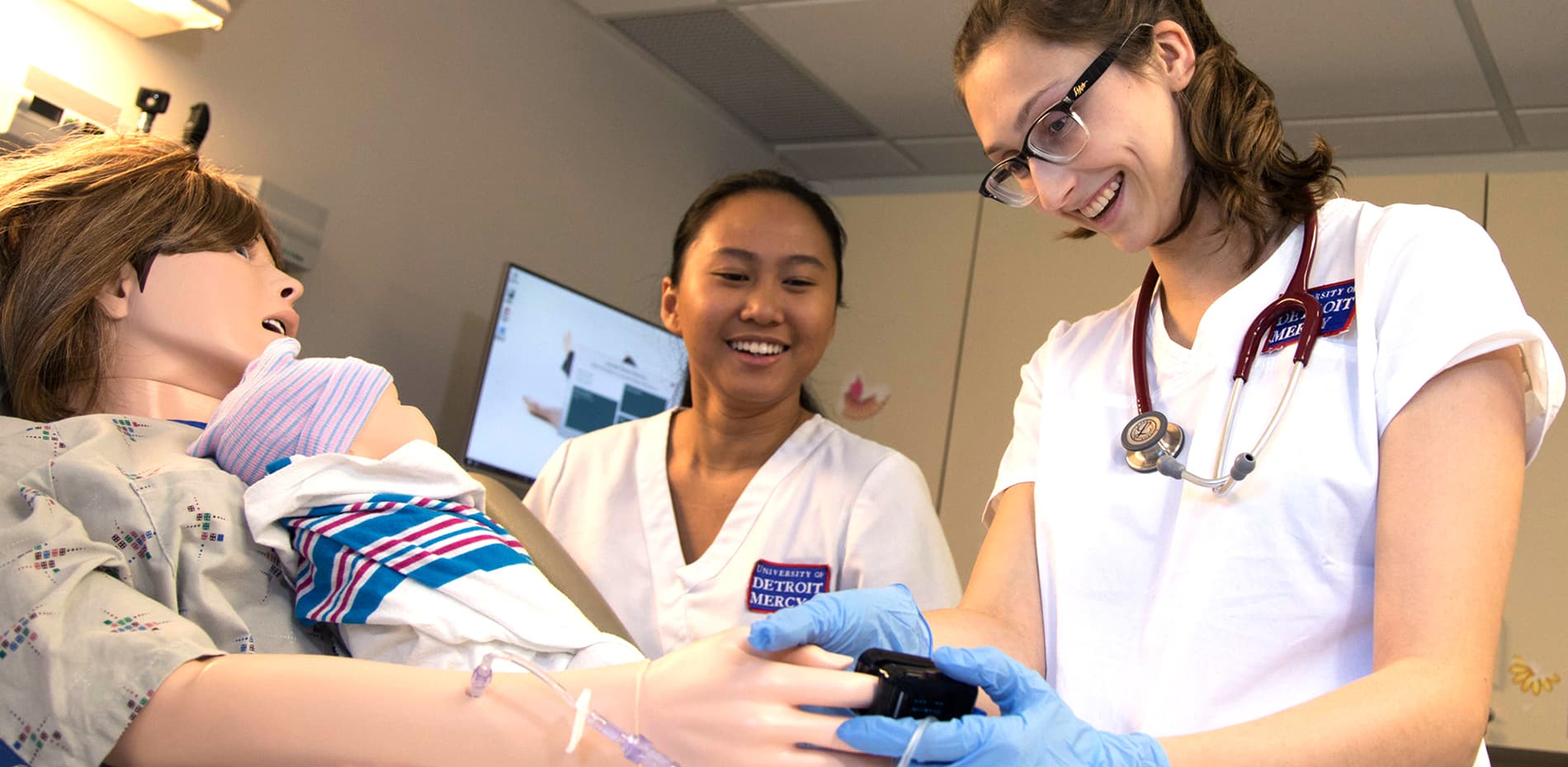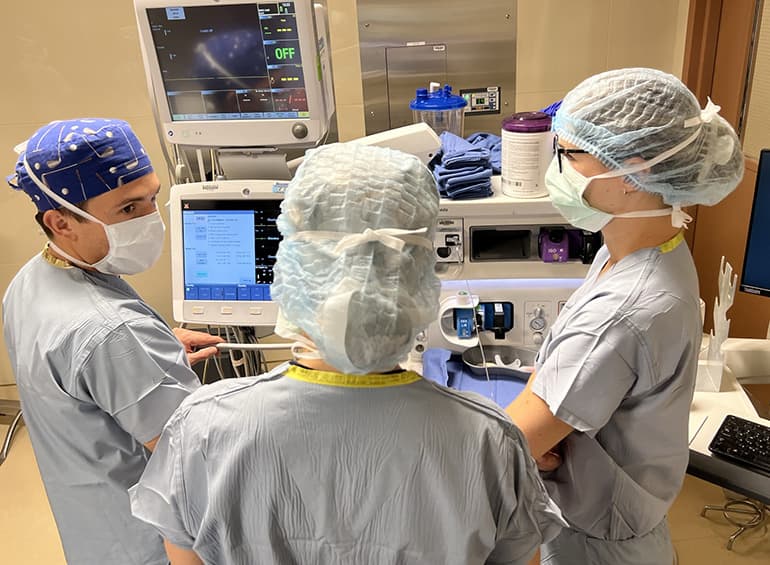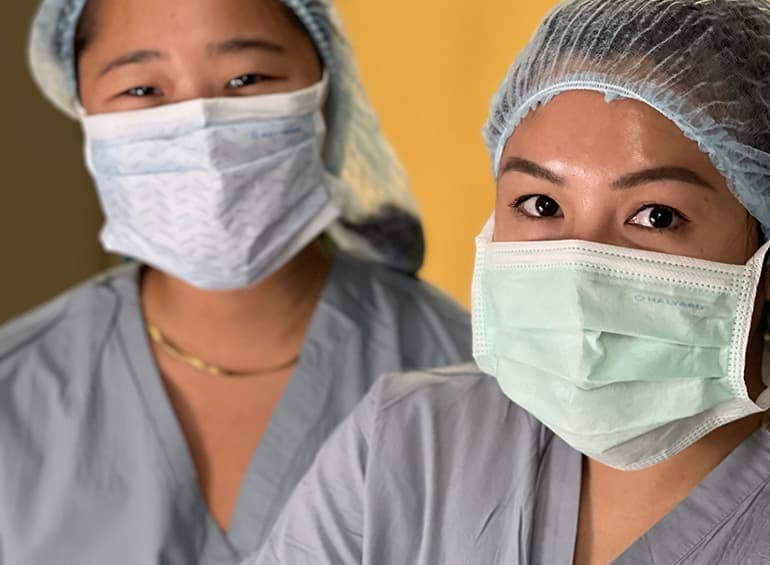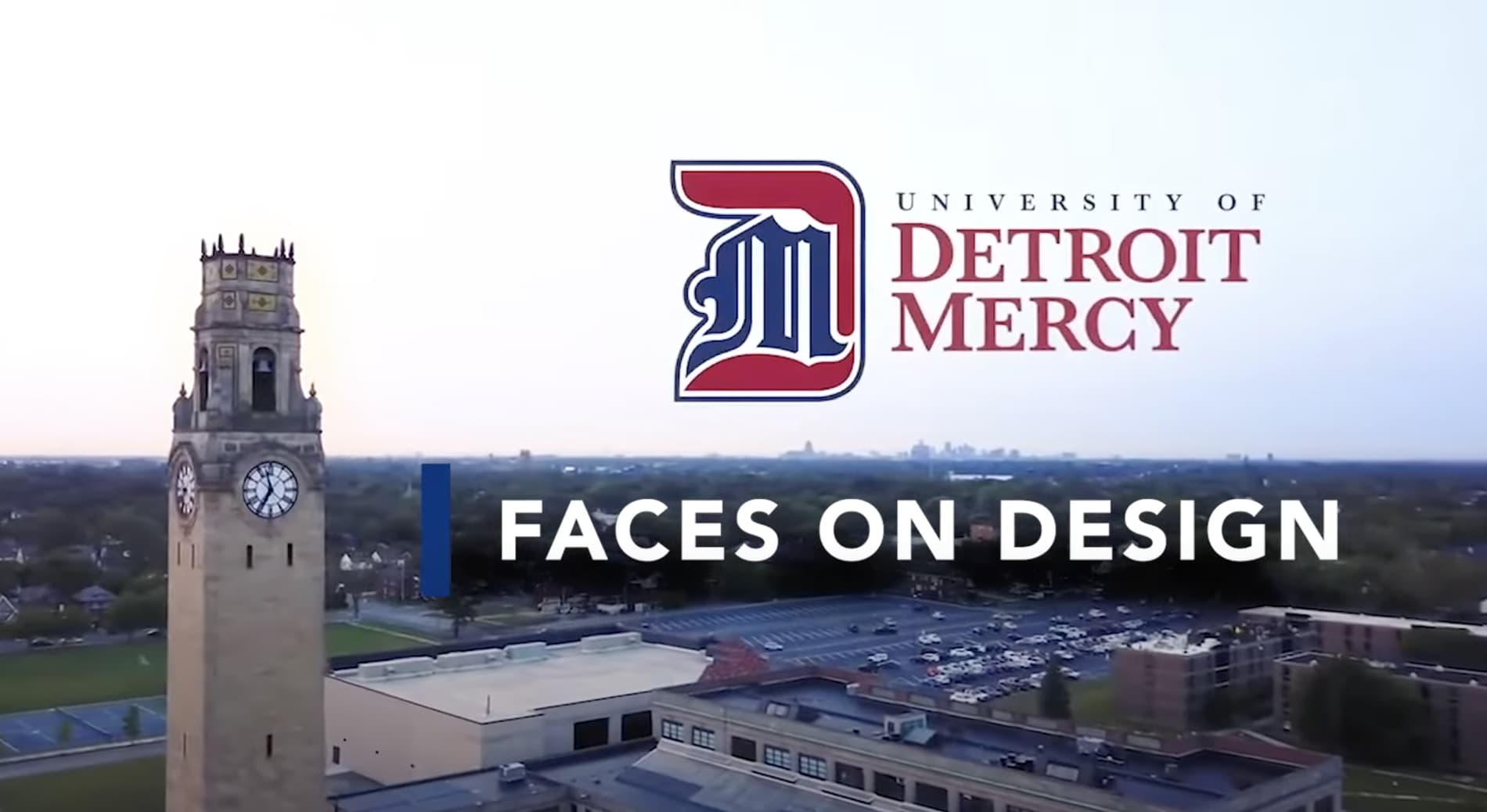Clinical, Co-op and Internship Opportunities

Real Deal
For those looking for extensive opportunities, University of Detroit Mercy provides some of the best. In all of our Health Professions programs, clinical and non-nursing co-op and internship experiences are not only abound but are integral components of each program's curriculum.
Through these real opportunities, our students gain invaluable practical experience on-the-job — along with full college credit — while participating healthcare professionals (and their sponsoring institutions and hospitals) receive quality assistance from well-educated, highly motivated student practitioners.


Careers
You'll not only receive a great Detroit Mercy education, we're also here to help you launch a successful professional career. That's why we put so much emphasis on working with you to develop a career plan, helping your find the optimum co-op opportunities, and assisting you in landing your first professional career position after graduation.
The clinical experience gained by our Health Professions students contributes significantly to the high rate of job placement among our graduates. In each of the past two years, more than 90% of Health Professions and 100% of our Nursing graduates were successfully placed in career-related employment or entered graduate school within six months of graduation.
Our Career Education Center is designed to provide you with a comprehensive approach to career development and the professional world of work. This developmental process begins with freshman workshops and continues throughout the entire academic program in order to maximize your individual career preparation.
Multidisciplinary patient-centered program: Faces on Design
This joint-effort program pairs higher-level Nursing students from the College of Health Professions and seniors from the College of Engineering & Science to improve lives by designing a one-of-a-kind assistive device to combat the lack of solutions within the disabled community.
The two-semester course focuses on meeting with the client, understanding their daily living rituals and collaborating with the client and each other to identify an obstacle the team of students could help the client overcome. Student teams implement the design with a prototype, putting it to the test and modifying it to fit the client's specific needs. The multidisciplinary class closes with an almost celebratory design presentation event at the end of each school year.
The collaboration allows Nursing students to implement everything they have learned from pharmacology to community health and be able to relay that to the Engineering students to assist in their design.
I never would've even thought to have put these two learning curriculums together and now, after experiencing it from start to finish, I just think this is such a staple program. It should be taught in every school.
—Alyssa Nardone '22

